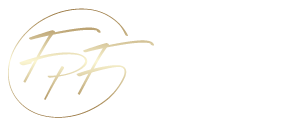Forex trading seems easy and lucrative because it has been benefiting people greatly and making them financially stable in less time.
But the truth is that within all the benefits, there are huge risks and challenges that traders have to face every day.
Thriving in the forex trade industry is filled with hurdles and you can also face great loss but all you need to do is learn about risk management.
Explore the strategies of forex prop firms to trade in the best possible way, their pros, and cons to generate maximum potential. Choose the right Forex Prop Trading Firm that suits you best.
Strategies of Prop Trading Firms
Trading strategies are a trader’s way to generate profit and avoid loss. Scalping, Day trading, Swing Trending, and many more are the strategies adopted by prop firms to benefit their traders.
Scalping
With the strategy of scalping, we need to monitor the fluctuations and small price movements while making numerous trades. Traders aim to make a large number of trades in a short period.
Pros
Profits can be gained quickly, with fewer risks as traders are trading for a short period.
Cons
Immediate and instant decisions are made.
Great number of trades can cause interruptions in transactions.
Day Trading
Day trading is the strategy to trade on the same day. Traders have to buy assets and sell them instantly. The target is to gain profit from intraday price movements.
Pros
No overnight exposures and risks.
If traders can efficiently recognize the short-term trends, they’ll get quick profits.
Cons
Requires great time and monitoring the whole day. Can be stressful, especially during volatile market conditions.
Position Trading
Traders with the strategy of position trading hold trades for longer periods. The period ranges from days to months and gains profit from major price movements.
Pros
Traders are carefree from short-term market fluctuations and their impact. They focus on greater movements and market trends. Minimal monitoring is needed.
Cons
The strategy is not for impatient traders because trades need to be held for a long time. Larger stop-loss orders are required to cope with wider price swings.
Swing Trading
With this strategy, Traders aim to achieve short- to medium-term gains by holding positions for a few days or sometimes for a few weeks, and following the swing in asset prices.
Pros
Need less time and attention compared to day trading. Larger price movements can be captured as compared to scalping.
Cons
Too much dependable on Market timing, and can cost traders if they enter or exit positions too early or too late.
Arbitrage
Traders with an Arbitrage strategy trade the same asset in different markets, they buy and sell assets simultaneously on different exchanges to make a profit.
Pros
Low or no market risk as it exploits pricing inefficiencies. It doesn’t require extra monitoring and can be profitable even with minimal exposure to market movements.
Cons
Suitable for people with advanced knowledge of trading markets and systems.
Limited Opportunities.
Algorithmic Trading
In this strategy, prop trading firms use a computer algorithm to trade automatically. The trading criteria such as volume and pricing predefined
Pros
Algorithms allow trades at high speeds and frequencies and don’t let market inefficiencies affect trading. In Algorithmic trading, trading decisions are free from emotional influence and taken automatically.
Cons
Sudden technical glitches and interruptions are expected. This strategy requires efficient programming skills. The algorithm needs to be monitored constantly.
Summary
| Trading Strategy | Time Horizon | Risk Level | Pros | Cons |
|---|---|---|---|---|
|
Scalping |
Minutes to Hours | High | Quick profits, less exposure to market risks | Requires fast decision-making, transaction costs can accumulate |
|
Day Trading |
Intraday |
High |
No overnight exposure, quick profits from short-term trends |
Requires significant time and attention, can be stressful |
| Position Trading |
Days to Months |
Medium to High |
Captures large market trends, less monitoring required |
Requires patience, larger stop-loss orders |
|
Swing Trading |
Days to weeks |
Medium |
Requires less time than day trading, captures larger price movements |
Market timing is crucial, and may miss opportunities |
|
Arbitrage |
Short-term |
Low to Medium |
Low to no market risk, profits from pricing inefficiencies |
Requires advanced knowledge, limited opportunities |
| Algorithmic Trading | Short to Medium term | Medium to High | High-speed execution removes emotional bias |
Requires programming skills, constant monitoring |
FPF’s Proven Strategies
Forex Prop Firm is one of the credible prop trading firms in the forex industry. They employ these strategies and depend on position trading, scalping, and day trading.
These strategies focus on maximum profit while mitigating risks, making Forex Prop Firm a trusted choice for traders of all levels for instant funding. FPF’s strategies offer several benefits, including increased profits, access to trading technology, and the ability to become market frontrunners.
Our optimized trading strategies contribute to FPF’s credibility as a leading prop trading firm in the forex industry.
Conclusion
There are different strategies adopted by prop trading firms. They have pros and cons and traders prefer them according to their desires. Forex Prop Firm mostly uses scalping, day trading, and position trading to generate more profit. Traders need to make the right choice while selecting the prop firms to maximize their potential for trading. This will help them in achieving financial stability in no time!


